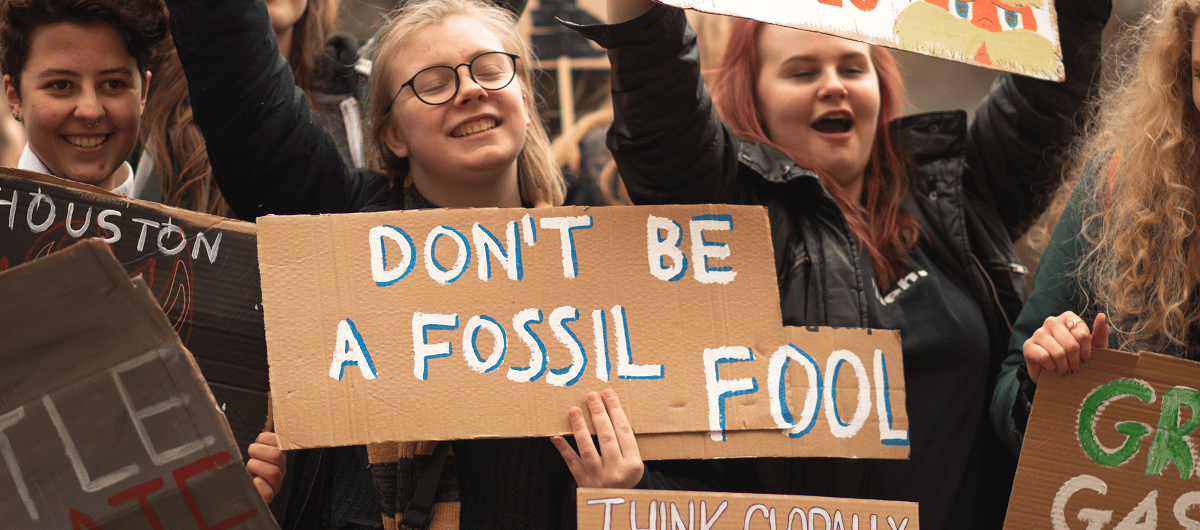
Climate Change: Less than Half Say UK Government Motivated by Improving Lives of Future Generations
Less than half (45%) of the UK public think that, when it comes to climate change, the government is motivated by improving the lives of future generations – the lowest across six countries included in an international study.
Ireland (49%) fares almost as badly as the UK on this measure, with both countries behind other western European nations, such as Italy (60%) – which comes top – and Germany (56%).
In the UK, there is also an age divide in views on this question, with younger people more likely than older people to have a positive perception of the government: 52% of people aged 18 to 34 think it is motivated by improving the lives of future generations – compared with 43% of those aged 35 and over who feel the same.
Carried out by the Policy Institute at King’s College London as part of an academic project investigating public trust in expertise, the research is based on survey data from over 12,000 people.
The study finds the public in the UK and Ireland are also relatively less likely to perceive their governments as being driven by other positive priorities on climate change:
- 39% in the UK and 40% in Ireland feel their government is motivated by improving the lives of people like them – the lowest among the nations surveyed, and behind other countries such as Italy (53%) and Poland (50%), which fare best on this measure.
- More than half of people in both the UK (52%) and Ireland (54%) say their government is not motivated by concern for those most likely to be harmed by climate change or actions taken to address it – the only countries polled where a majority hold this view.
- 46% in the UK and 48% in Ireland believe the government is motivated by the thought that the public is counting on them. This is similar to Poland (49%), but behind Germany (52%), Italy (54%) and Norway (55%).
The six countries included in the study – the UK, Ireland, Italy, Germany, Norway and Poland – were selected to reflect a range of different contexts across factors such as location within Europe, population size, GDP levels, political structure and levels of trust in institutions, as measured in other studies.
Half of people in the UK tend to think the government is incompetent in dealing with climate change
The study also asked people to rate the competence and honesty of different institutions and individuals in tackling climate change, revealing:
- 49% of the UK public say the government is incompetent in dealing with climate change, compared with 21% who say it is competent. This places the UK on a par with Italy, where 47% say the government is incompetent, and second only to Poland, where 65% feel this way.
- The European Commission is seen as incompetent on tackling climate change by a smaller share of the UK public (28%), while climate scientists fare even better, with only 14% rating them as incompetent, and most (51%) believing them to be competent.
- 48% of people in the UK believe the government is dishonest when it comes to dealing with climate change – more than double the proportion (22%) who think it is honest. Climate scientists, on the other hand, are seen as honest by a majority of 54%.
The findings from this research were produced as part of Policy, Expertise and Trust (PERITIA) – an EU-funded project that aims to help citizens and policymakers understand trust in science and identify trustworthy expertise.
Professor Bobby Duffy, director of the Policy Institute at King’s College London, said:
“Large proportions of the UK public are suspicious of their government’s motives on climate change, with many more agreeing the government are most interested in protecting their own reputation or making money than protecting current or future generations.
“There is, however, a great deal of trust in the motives of climate scientists and the information they provide, with the public particularly likely to trust climate scientists who work in universities compared with those who work for private organisations or government.
“But there remains a significant minority of the population who are sceptical of all sources of climate science information and advice, with, for example, one in five saying they don’t trust the IPCC.”
Read the full report, PERITIA: Public perceptions on institutions tackling climate change.


